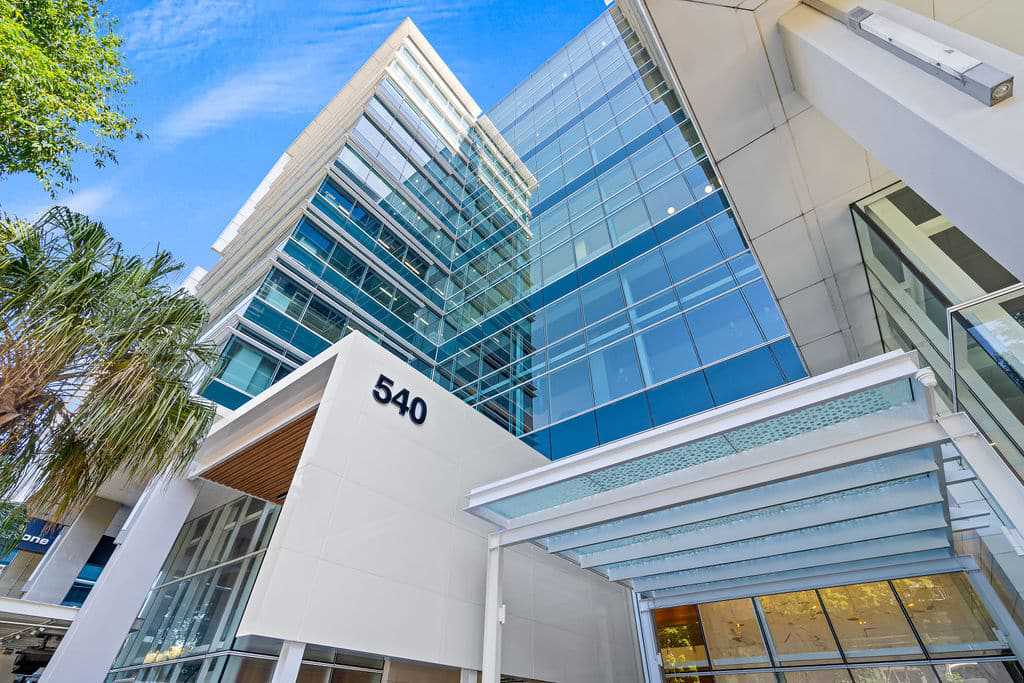Gross Rent v Net Rent: Key Differences
Rent. It’s a necessary operating expense for commercial tenants to run their business. But not all commercial property lease agreements are the same. Property owners or real estate agents use different types of rent calculations to attract tenants. Among the important terms you need to understand are gross rent vs net rent. The difference between these totals can add up to a significant portion over time., and cause serious confusion when tenants forecast their costs.
So if you're looking to rent office space in the Brisbane area, it can be helpful to develop a clear understanding of what to look out for when it comes to gross rent vs net rent.
What Is Gross Rent?
Gross rent is the total sum a commercial tenant has to pay including all expenses. This total includes outgoings, the additional costs that a tenant has to pay, such as rates, land taxes, insurance, property management fees or other maintenance costs. Generally, this is charged on a monthly basis and paid with the office rent in one transaction. For tenants, having a gross rent single payment may be more convenient than having to pay multiple charges throughout the period. It also means the payment will be consistent, instead of having a different fee each month depending on maintenance items, water or electricity charges, or other fluctuating costs.
When determining the overall cost of your lease, it is important to remember that gross rents do include operating expenses. These could include utilities such as electricity, gas, water and in some instances internet connections. Depending on your business, these costs may be significant. So, working with a professional real estate agent, it is worth calculating the overall costs that you will incur on a gross rent or a net rent basis.
The difference between gross rent and net rent is what is included in the payment. As described, gross rents are inclusive of other charges. Net rents, however, do not include outgoings. The cost is just the rent for the commercial property. Other charges are additional, and may be sent throughout the month or year. This may suit some companies because they will maintain oversight over their costs.
What Is Net Rent?
Net rent is a lease structure where tenants simple pay for the use of office space. Outgoings, or costs incurred for “running” and maintaining the office space are then billed separately as another charge.
Another term to understand when negotiating a commercial property lease is net effective rent. This takes into account any incentives, concessions or discounts offered, such as a bonus month rent free or improvements to the property (i.e. the Owner building a fit out on behalf of the Tenant for free). So the net effective rent is a total figure, calculated on a per square meter basis for a year. It tallies up both the base rent for the period, then subtracts any discounts or incentives to give the final total charge.
Some commentators in commercial property suggest that owners or landlords prefer a net rent charge instead of gross rent. This is not always the case, as it depends on the circumstances of the owner and tenant. There are many variables to the use of the property, and therefore the costs incurred. It is always best to consider the specific circumstances of your business operations before signing the lease.
What Is Semi-Gross Lease?
There is also another form of commercial property leasing in addition to net rent or gross rent, known as a semi-gross lease.
A semi-gross lease is where the tenant is required to pay their portion of any increase in the cost of outgoings, based off the first year of the lease. This provides a cost-sharing arrangement that may suit some owners and tenants, especially in an era of unpredictable utility and energy costs.
What Is the Difference Between Net Rent v Gross Rent?
When negotiating your commercial property lease, it is critical to understand the difference between gross and net rent.
Perhaps it is important for your business to have a consistent and simple cost structure, with one bill per month for rent? In this case, a gross rent contract may suit you. Having the base rent and the outgoings packaged together may be easier to manage and work better for your expenses.
On the other hand, if you like to maintain scrutiny over expenses and incur lower-than-average utility or maintenance costs, then maybe a net rent agreement is more suitable.
Given the wide range of business operations, these important gross vs net price differences are worth considering and calculating in order to get the best effective rent deal for your business.
Gross Leases vs. Net Leases: What You Should Know
There are a range of lease structures that should be analysed when determining your commercial property agreement.
Advantages of a Gross Lease
- Consistent fixed cost that will not fluctuate even if the true cost to the Owner increases over time.
- Simpler budgeting requirements for your business
- Packaged costs include Net Rent + Outgoings
Disadvantages of a Gross Lease
- Reduced awareness of detailed costs
- Lack of control over maintenance for the tenant
- Fewer transactions in accounting.
- If the true cost of outgoings reduces, the tenant won’t receive the benefit of that reduction in the form of a pay back.
Advantages of a Net Lease
- Improved oversight of costs, including utilities, taxes and charges
- Detailed analysis of costs, which may be higher or lower than in a package
Disadvantages of a Net Lease
- Potential for rises in utilities, such as rising energy and transportation costs
- Potential for rises in addition taxes such as Land Tax
- More accounting transactions.
When to use a gross or net lease comes down to your business needs. Each operation is different, and there are also advantages and disadvantages to the landlord and tenant of each method of determining a commercial lease.
Conclusion
Commercial property leases are important and impactful documents that matter to your day-to-day business operations. Make sure you understand what you are signing up for, whether it is leasing your property or renting a space. Understanding gross rent vs net rent is of critical importance.
To get all the expert advice and find a range of listings across inner Brisbane, contact Aegis Property Group.
If you are looking for opportunities to lease in the Brisbane Fringe, contact Aegis Property Group today. Aegis Property Group leaders have been leasing in the Brisbane area for 25 years. They offer a range of tenancies across northern Brisbane.
.svg)


